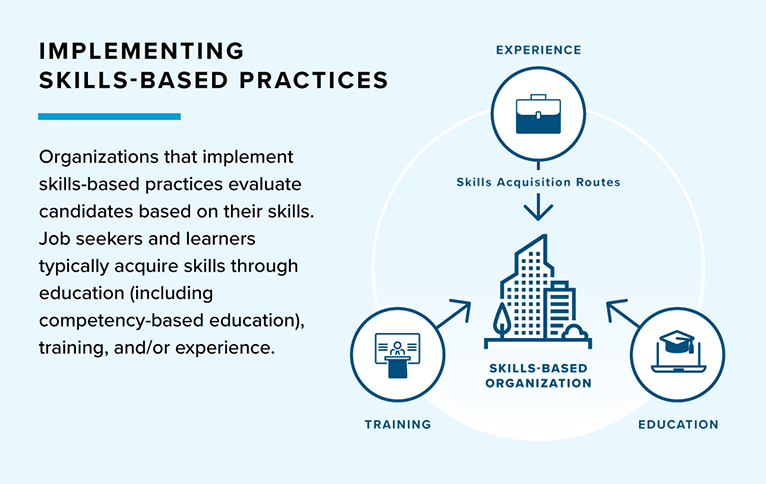Coordinating Skills-Based Hiring and Competency-Based Education Practices

Implementing skills-based hiring practices can expand the talent pool, improve staff retention, and increase diversity.
Today’s economy is marked by the rapid evolution of technology leading to labor shortages and evolving skill needs across the labor market. Finding and retaining a skilled workforce is key to an organization’s growth, yet many jobs in today’s economy require skills training beyond high school, but not a four-year degree. Implementing a skills-based approach to hiring means focusing on the skills needed to successfully perform jobs, using that lens to recruit, hire, develop, and promote qualified candidates.
Compared to traditional approaches to employee selection and promotion, skills-based practices can be a more nimble and equitable way of supporting organizational workforce needs and goals, while advancing career opportunities for a more diverse range of people. In partnership with postsecondary education providers, employers have an opportunity to reimagine the fundamental systems and structures of practices that focus on skills and competencies rather than on time, credits, degrees, and other signals that traditionally exacerbate inequalities.
At AIR, our workforce and postsecondary education teams engage with employers and postsecondary education institutions to study, understand, and track their adoption and maturation of related skills-based practices—including how they navigate the evolving landscape of skills-based practices and the degree to which these approaches deliver on their potential to advance equity.

Same Idea, Different Evolution: Skills-Based Practices and Competency-Based Education: Connecting Research Perspectives
Although employers continue to adopt and implement skills-based practices, education providers can also play a role by providing learnings and jobseekers with opportunities to develop valuable skills and competencies to be competitive and effective in the workforce.
This brief draws connections between the progress of and conversations among employers and education providers and the ways that foster further advancement of skills-based practices. The brief also explores (a) perspectives from employers on the challenges they face and on the benefits of skills-based practices; (b) perspectives from postsecondary education institutions on the challenges they face and on their motivations for adopting competency-based education models; and (c) early adoption trends and their impact on the broader education–workforce landscape.




